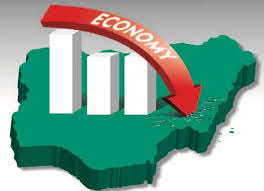Tax revenue is crucial to the survival of any nation. In most climes it is the engine upon which a country runs, however, Small and Medium Enterprises (SMEs) in Nigeria are buckling under the weight of multiple taxation coupled with near absent infrastructure and unducive business environment; BENJAMIN UMUTEME writes.
Small and Medium Enterprises (SMEs) play a major role in most economies, particularly in developing countries. SMEs account for the majority of businesses worldwide and are important contributors to job creation and global economic development.
Data from the World Bank indicates that about 90 per cent of businesses and more than 50 per cent of employment worldwide are from SMEs. Formal SMEs contribute up to 40 per cent of national income (GDP) in emerging economies. These numbers are significantly higher when informal SMEs are included.
According to the World Bank, 600 million jobs would be needed by 2030 to absorb the growing global workforce, which makes SME development a high priority for many governments around the world.
In emerging markets, most formal jobs are generated by SMEs, which create seven out of 10 jobs. Despite the crucial role they play in the development of any economy, various issues continue to impede SMEs from blossoming.
Issues such as regulatory barriers, including excessive bureaucracy, high taxes, and complex legal frameworks make it difficult for SMEs to operate efficiently and can limit their growth potential.
In Nigeria, SMEs have their own peculiar battles to contend with. This ranges from inadequate working capital, stiff competition from larger companies, difficulties in sourcing raw materials, low capacity, utilisation, lack of management strategies, poor educational background of operators, and huge financial problems.
For Adefolarin Olamilekan, a political economist, the growth of small businesses and their impact on the economy cannot be underestimated.
He said that was why serious governments ensure nano, mini, micro, small, big and large businesses development which are linked to the national economic production.
“This, in a way, provides leeway to boost local industrialisation, a situation that enhances national backward integration of harnessing local resources, research output, technology, innovation, creativity and talent.
“For us this is how the global business world is breaking forth. Interestingly, the Asian Tigers alongside their Asian Combs have mastered the mechanism and ideation of business growth and development.
“In this respect the Chinese government understands this clearly and practically demonstrates the kinds of support it gives to businesses across the board, significantly to SMEs. As well as appreciating the role of tax to the national economy,” Olamilekan said.
Small businesses groan
While it has become imperative to raise revenue through taxes, however, the issue of multiple taxes continues to be a challenge to business across the length and breadth of Nigeria.
Multiple taxes have negatively affected the growth of small businesses in Nigeria as many operators of these businesses expressed their unwillingness to venture into new enterprises or expand the existing ones for fear of multiple taxes that continue to take a significant portion of their earnings.
Experts say multiple taxations also have devastating impacts on micro, small and medium enterprises.
Price water house Coopers Company, in its research paper titled “Building to Last: Navigating MSME Growth and Sustainability in a New Decade,” stated that 57 per cent of multiple taxes and levies, lack of coordination of federal & state agencies and the absence of technology platforms are some of the challenges to SMEs growth.
According to Adefolarin, multiple taxation is one of the banes of SMEs’ stunted growth, alongside deficit infrastructure that compound cost of operation.
For instance the federal government collects taxes on nine areas, state government 25 sources, and local government 21 sources. Unfortunately, these tax sources are multiple in nature.
Why SME’s can’t thrive
The Chartered Institute of Taxation of Nigeria had also noted that many small businesses in Nigeria do not survive beyond their fourth anniversary due to multiple taxation amongst other challenges.
The tax institute said the use of crude means such as mounting of roadblocks and forceful closure of shops does more to discourage payment of tax.
For Mrs Catherine Oghogho, a trader in Nyanya Market, she was compelled to pay money to 3 different revenue collectors daily, an experience which continues to leave a sour taste in her mouth.
According to the petition trader, she makes these payment on a daily basis even when sales are not good.
Mrs Oghogho told Blueprint Weekend, “They don’t care whether we make sales or not, they are more concerned about the money they will collect from us. Everybody knows what is happening in the country at the moment. They can at least reduce the money we pay so that we can be able to make better profit. If the business stops, will they be able to still collect the money,” she queried.
On his part, Mr. Chidi, who owns a wholesale provision shop in Jikwoyi, told our reporter that every year he was made to pay up to five different levies by local government revenue collectors.
“How much is the profit we make that we pay so much to them. When you refuse to pay they threaten to lock up your shop. There was a certain year that my shop was locked for two days because I couldn’t pay on time,” he bemoaned.
Restructuring tax regulations
Speaking at the Lagos Business School, Founder of Tony Elumelu Foundation (TEF), emphasized the need for the government to embark on a radical approach that would shape the behaviours of entrepreneurs and business owners towards payment of taxes in a more obligatory manner.
He called for the restructuring of government regulations and taxation to support business growth in Nigeria.
According to Elumelu, “Multiple regulations hinder business growth; and we need to regulate our tax laws and practices in a manner that would create enabling environments for businesses, particularly start-ups and SMEs, to thrive in the economy. If taxes are well regulated for businesses, there would be an increase in government revenue, more businesses would grow, thereby helping to curb unemployment and improve the economy significantly.”
He stressed the need for a comprehensive reorientation exercise across all tax agencies that would ensure that officers have the right values required for the job and that due process is followed at all times in government regulations for businesses.
“We should use tax as a dynamic fiscal tool to shape corporate behaviour and ensure that our business climate is conducive for investors to thrive for a more robust economy that will, in turn, increase the tax base,” he said.
Abolishing multiple taxes
As a way of addressing this distortion, the Presidential Committee on Fiscal Policy and Tax Reform has recommended the abolition of multiple taxes imposed on Nigerians struggling to survive.
This was part of the recommendations contained in the committee’s report on its medium-term solution to the problems of taxation across the country.
The Committee Chairman, Taiwo Oyedele, who described such taxes as “inhumane” adding that it was killing small businesses.
“We have over 60 taxes and levies officially collectible by the federal government, state governments, and local governments. Unofficially, those taxes are over 200, making life difficult for our people.
“The objective we have is to bring all of that to a single digit. People selling pure water collect seven tickets every single day. Why should someone, who is just trying to hawk pure water to keep body and soul together, have to pay seven taxes on a daily basis?
“The most sustainable way for any country to generate revenue is to grow the economy. When businesses succeed, when individuals prosper, they pay taxes. Now we are at the phase of re-writing our laws. We’ve spent time with the National Assembly, and the whole idea is, we think that some of the reforms we need to introduce, we have to go through the constitution itself,” he declared.
The other recommendations in the committee’s report, referred to as “Quick Wins”, will be deliberated upon at next week’s Federal Executive Council (FEC) meeting for adoption and approval or otherwise.
Adefolarin, who is a development researcher, noted that the issue of multiple taxation was complicated due to the dysfunction in government’s drive for revenue generation made worse by inconsiderable tax laws unfavourable to businesses hence the need to urgently address the situation, to avoid the negative impact on the economy and essential on job creation, poverty alleviation, income generation and distribution, on the nation’s GDP.




